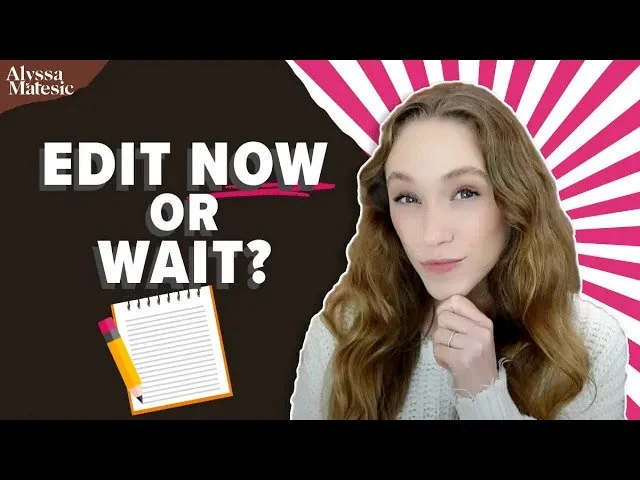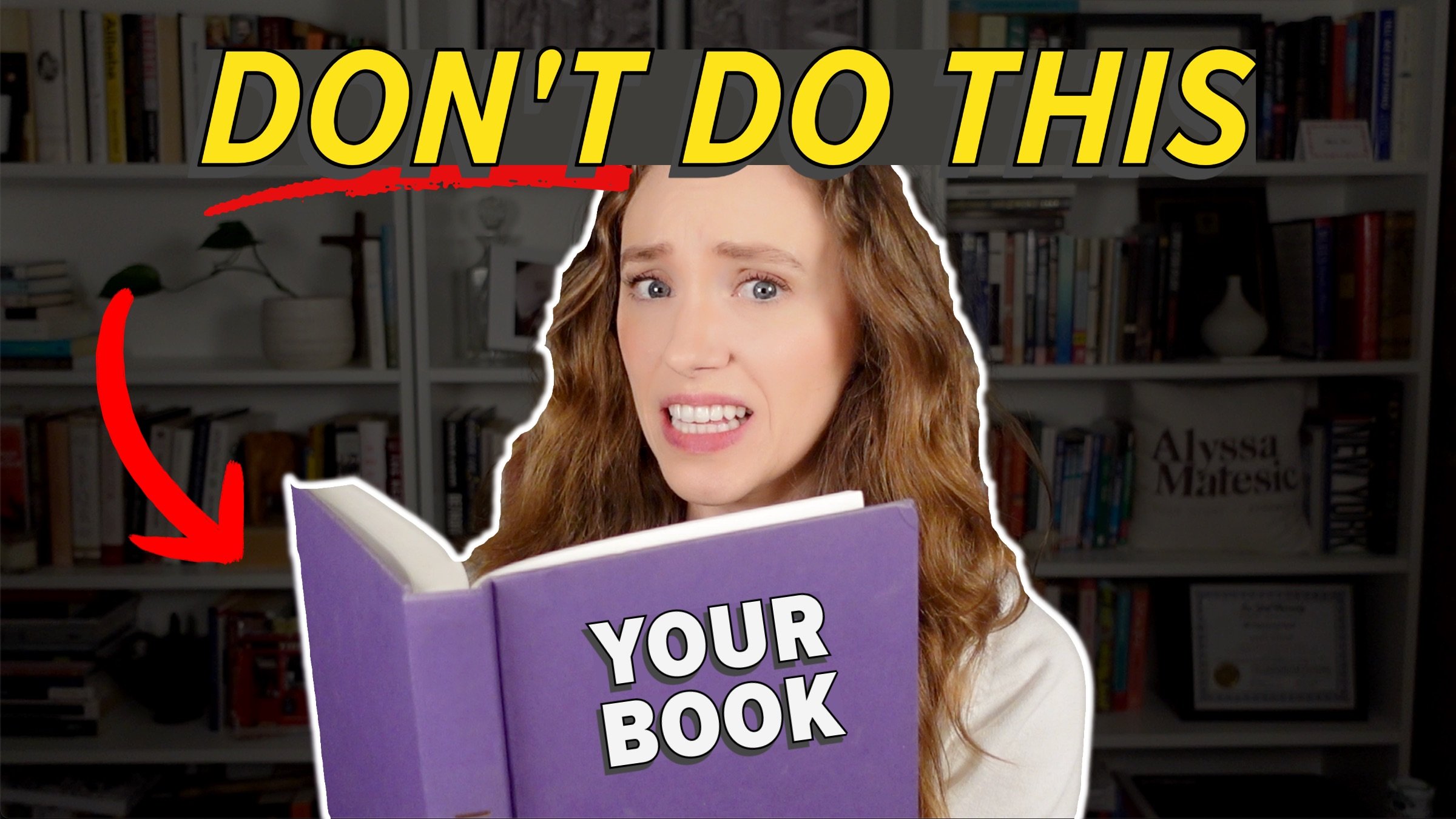When to Hire a Developmental Editor: 5 Signs You’re Ready
HIT PLAY OR READ THE POST BELOW:
As a developmental book editor, I truly believe that revisions are where the magic happens and your story becomes the strongest version of itself. A successful developmental edit has the power to transform your story from a messy rough draft into something you are truly proud to share with the world.
In a developmental edit, you are solidifying all of the core story elements: character arcs, plot development, pace, structure, POV. This edit helps you ensure that all of those elements are holding the story up foundationally. You might already know that developmental editing is a critical component of getting your book ready for publication, but what becomes less clear is when to hire a developmental editor (or embark on this type of editing on your own).
Developmental editing is a large investment in terms of your time and energy, and if you're working with a professional editor, it can be a significant monetary investment as well. So that you get the most out of your developmental edit, today I'm going to go over five key criteria you need to meet before you go full steam ahead into a developmental edit.
1. You Have a Full Draft
While your manuscript is still very much a work in progress at this point, it should still be a complete draft with a beginning, middle, and end. That's because when you hire a developmental editor, they’re going to be looking at your story from a holistic perspective, and they need to know your overarching intentions for the story.
If you only have a partial manuscript available, then the developmental edit is going to be limited in scope, because anyone who is evaluating your story is not going to be able to see the whole thing or get the full gist of what you are trying to convey. That's why it's really most efficient and most effective to have a full draft before going into a developmental edit.
That's not to say that you can't get feedback during the drafting process. Many authors work with book coaches or with critique partners throughout the drafting phase to help keep them accountable and on track, which is totally fine and valid. But a true comprehensive developmental edit will come in once you have a full draft.
2. You Know the Story You Want to Tell
You need to have a strong understanding of your intentions for this story prior to hiring a developmental editor. That's because whenever you work with someone through the developmental editing process, they are going to be evaluating if your intentions are coming across to the reader. Is the message or theme that you want to evoke clearly present in the story, or is it buried or not coming across as you intended?
You also want to make sure that any revisions that you embark on stay true to the vision that you have for the book, which is only possible if you have a clear sense of that vision. That's not at all to say your vision or intentions for the story can't change over the course of the edit; they very well might. But it helps to go into the edit with a firm sense of what you want the reader to take away from reading your story.
Here are some questions to ask yourself:
What feelings should the ending of my book elicit in the reader?
What theme or message do I want this story to convey?
Which characters do I want the reader to connect with?
Whose story is this, really?
Think through all of those things and make sure you have clear answers before going into a developmental edit.
3. Your Writing Is Satisfactory
If there are substantial issues with your writing on a grammatical level that affect someone's ability to comprehend the story, then you need to address that first before engaging in developmental-level feedback. That's because it's likely going to be difficult for someone to follow the narrative at a very intimate level if they are getting tripped up by grammar constantly.
Now, that doesn't mean your draft needs to be totally error-free; there are bound to be typos here and there, and that is totally fine. But if the grammar makes it so that it is tough to sort out what's going on in the story, then that's the area you need to focus on first. Make sure your prose is holding up on a sentence level before hiring a developmental editor.
4. You See the Issues, But Not How to Fix Them
The next way to tell that you're ready for a developmental edit is if you see there are issues in the draft but don't know how to fix them. Before you go into the developmental edit, it is totally expected that you have a sense of some areas in your story that are weaker or that you know for sure you want to develop on the next draft. It's best to do as much work with the story as you can on your own via rereading and self-editing ruthlessly.
As you are self-editing, take notes of certain areas that you know you want to revisit, areas that you couldn't quite figure out on this draft. Where are you getting stuck? These are areas that whoever is providing you feedback can help you sort through and find tactical, concrete ways to fix and improve.
Once you take the story as far as you can on your own, then your critique partner or your editor can step in as that fresh set of eyes that you need. They will give you a roadmap, helping you work through all of those thorny issues that you couldn't figure out, and they're likely going to raise points that you never even thought of — all of which is super valuable.
5. You’re Ready for the Work Ahead
The final criteria to check to determine when to hire a developmental editor is if you are prepared for the hard work ahead. I'm not going to sugarcoat it: developmental editing is a lot of hard work. It's difficult, but it's so, so rewarding. That's why I love doing it as my job.
Developmental editing requires an exploratory mindset. You're going to be digging deep into your manuscript, possibly reshaping the entire plot or character arcs. This can be incredibly challenging and time-consuming, but I promise it should also be exhilarating and exciting.
Before you take this step, ask yourself seriously if you are ready to receive this level of constructive feedback. Are you ready to make potentially substantial changes to the manuscript and spend a lot of time and energy revising it? Your developmental edit is only going to be successful if you are prepared to take on that level of work. You need to approach it with a positive and open mindset, knowing that this is a necessary step to making your story the strongest it can possibly be.
I hope this helped you determine if you are ready to hire a developmental editor and embark on this part of your book writing journey. Thanks so much for reading, and happy writing!






